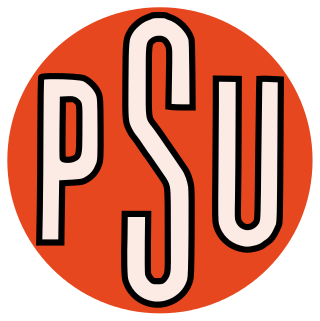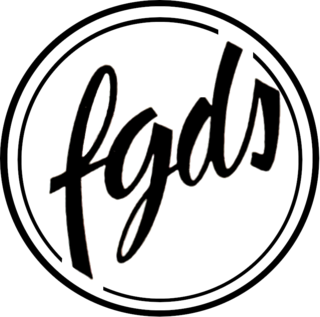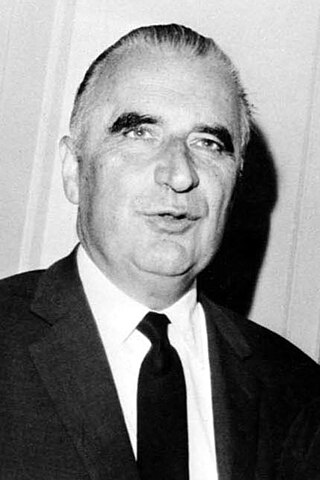| ||||||||||||||||
| Turnout | 77.59% (first round) 68.85% (second round) | |||||||||||||||
|---|---|---|---|---|---|---|---|---|---|---|---|---|---|---|---|---|
| ||||||||||||||||
| ||||||||||||||||
Presidential elections were held in France on 1 June 1969, with a second round on 15 June. They were triggered by the resignation of President Charles de Gaulle on 28 April 1969.
| ||||||||||||||||
| Turnout | 77.59% (first round) 68.85% (second round) | |||||||||||||||
|---|---|---|---|---|---|---|---|---|---|---|---|---|---|---|---|---|
| ||||||||||||||||
| ||||||||||||||||
Presidential elections were held in France on 1 June 1969, with a second round on 15 June. They were triggered by the resignation of President Charles de Gaulle on 28 April 1969.
Incumbent president Charles de Gaulle proposed a referendum on government decentralisation and a reform of the Senate. In the referendum on 27 April, 53.5% of voters rejected the proposed amendments. Following the announcement of the results, De Gaulle resigned as president at noon the following day, having threatened to do so if the referendum had failed. [1]
In the presidential election, the Gaullist Party (Union of Democrats for the Republic, UDR) was represented by former Prime Minister Georges Pompidou. He was very popular in the conservative electorate due to economic growth when he led the cabinet (from 1962 to 1968) and his role in the settlement of the May 68 crisis and winning the June 1968 legislative campaign. In his presidential campaign, he obtained the support of the Independent Republicans and their leader Valéry Giscard d'Estaing, who had voted "no" in the referendum.
The left-wing French Communist Party (PCF) proposed to the French Section of the Workers' International (SFIO, later formed the Socialist Party) to present a candidate with a common programme, but the SFIO refused. The Left was severely divided in this election. The PCF candidate was Jacques Duclos, one of the historical leaders of the party. The mayor of Marseille, Gaston Defferre, was the SFIO candidate and campaigned with Pierre Mendès France, who would have become Prime Minister had Defferre been elected to the presidency. This candidacy was the first – and so far, only – dual "ticket" in a French presidential election. But Defferre's campaign was weakened by the decision of centrist interim President Alain Poher to run. As Chairman of the Senate, Poher had led the "no" campaign in the referendum. The success of the "no" campaign gave him the legitimacy to run for the presidency and he rallied a large swathe of centre-right and centre-left voters.
Michel Rocard and Alain Krivine stood as candidates expressing the ideas of the May 1968 movements, though the Trotskyist Krivine took a far more radical stance. [2]
The first round of voting was held on 1 June 1969. Out of a total of 28,774,041 eligible voters, participation in the first round hovered around 78% of the electorate. Pompidou and Poher won the right to compete in the second round by claiming 43.9% and 23.4% of the vote respectively. [2]
The second round saw Pompidou facing Poher. None of the left-wing candidates reached the second round, despite a good campaign and the result for Duclos, who scored the best ever result for a Communist in a presidential election. [3] The Socialists supported reluctantly the centrist Chairman of the Senate. The Communists refused to choose and used a slogan which was equivalent to the phrase "It's six of one and half a dozen of the other" (c'est bonnet blanc et blanc bonnet).
The second round was held on 15 June 1969. About 69% of eligible voters participated. Pompidou was elected President of France with a comfortable majority of more than 58%. [2]
| Candidate | Party | First round | Second round | |||
|---|---|---|---|---|---|---|
| Votes | % | Votes | % | |||
| Georges Pompidou | Union of Democrats for the Republic | 10,051,783 | 44.47 | 11,064,371 | 58.21 | |
| Alain Poher | Democratic Centre | 5,268,613 | 23.31 | 7,943,118 | 41.79 | |
| Jacques Duclos | French Communist Party | 4,808,285 | 21.27 | |||
| Gaston Defferre | French Section of the Workers' International | 1,133,222 | 5.01 | |||
| Michel Rocard | Unified Socialist Party | 816,470 | 3.61 | |||
| Louis Ducatel | Miscellaneous left | 286,447 | 1.27 | |||
| Alain Krivine | Communist League | 239,104 | 1.06 | |||
| Total | 22,603,924 | 100.00 | 19,007,489 | 100.00 | ||
| Valid votes | 22,603,924 | 98.71 | 19,007,489 | 93.58 | ||
| Invalid/blank votes | 295,036 | 1.29 | 1,303,798 | 6.42 | ||
| Total votes | 22,898,960 | 100.00 | 20,311,287 | 100.00 | ||
| Registered voters/turnout | 29,513,361 | 77.59 | 29,500,334 | 68.85 | ||
| Source: Constitutional Court, Constitutional Court | ||||||

Gaullism is a French political stance based on the thought and action of World War II French Resistance leader Charles de Gaulle, who would become the founding President of the Fifth French Republic. De Gaulle withdrew French forces from the NATO Command Structure, forced the removal of Allied bases from France, as well as initiated France's own independent nuclear deterrent programme. His actions were predicated on the view that France would not be subordinate to other nations.
The Revolutionary Communist League was a Trotskyist political party in France. It was the French section of the Fourth International (Post-Reunification). It published the weekly newspaper Rouge and the journal Critique communiste. Established in 1974, it became the leading party of the far-left in the 2000s. It officially abolished itself on 5 February 2009 to merge with smaller factions of the far-left and form a New Anticapitalist Party.

Alain Émile Louis Marie Poher was a French politician who served as President of the Senate from 1968 to 1992. Under this capacity, he was twice briefly acting President of France, in 1969 and 1974 following the resignation of Charles de Gaulle and the death of Georges Pompidou respectively. Poher was affiliated with the Popular Republican Movement (MRP) until 1966 and later with the Democratic Centre (CD) and Centre of Social Democrats (CSD), which he joined in 1976.

The Unified Socialist Party was a socialist political party in France, founded on April 3, 1960. It was originally led by Édouard Depreux.

Presidential elections were held in France in 1974, following the death of President Georges Pompidou. They went to a second round, and were won by Valéry Giscard d'Estaing by a margin of 1.6%. It is to date the closest presidential election in French history.

Presidential elections were held in France on 5 December 1965, with a second round on 19 December. They were the first direct presidential elections in the Fifth Republic and the first since the Second Republic in 1848. It had been widely expected that incumbent president Charles de Gaulle would be re-elected, but the election was notable for the unexpectedly strong performance of his left-wing challenger François Mitterrand.

Gaston Defferre was a French Socialist politician. He served as mayor of Marseille for 33 years until his death in 1986. He was minister for overseas territories in Guy Mollet’s socialist government in 1956–1957. His main achievement was to establish the framework used to grant independence to France’s African territories. In 1967, he fought the last duel in French history. As the Socialist candidate for president in 1969, he received only 5 percent of the vote. He was much more successful in promoting François Mitterrand as leader of the Socialist Party in 1971. He held a series of ministerial portfolios after the Socialist victory in 1981, especially as minister of state for the interior and decentralization.

Legislative elections were held in France on 4 and 11 March 1973, to elect the fifth National Assembly of the Fifth Republic.

The Federation of the Democratic and Socialist Left was a conglomerate of French left-wing non-Communist forces. It was founded to support François Mitterrand's candidature at the 1965 presidential election and to counterbalance the Communist preponderance over the French left.

Legislative elections were held in France on 5 March 1967, with a second round on 12 March, electing the third National Assembly of the Fifth Republic. Although the Gaullists retained their absolute majority, the results made it clear that Charles de Gaulle's position was weakening, as the French Communist Party and the Socialists achieved 40% representation in parliament.
The Epinay Congress was the third national congress of the French Socialist Party, which took place on 11, 12 and 13 June 1971, in the town of Épinay-sur-Seine, in the northern suburbs of Paris. During this congress, not only did the party admit the Convention of Republican Institutions into its ranks, but the party leadership was also won by Mitterrand and his supporters. For the observers and the French Socialists themselves, the Epinay Congress was the real founding act of the current PS. It was also the turning point in Mitterrand's grand political plan, which led to the ascendancy of the French Left over the next quarter-century, and eventually, in 1981, to Mitterrand's election to the Presidency of France for two consecutive 7-year terms.
Tripartisme was the mode of government in France from 1944 to 1947, when the country was ruled by a three-party alliance of communists, socialists and Christian democrats, represented by the French Communist Party (PCF), the French Section of the Workers' International (SFIO) and the Popular Republican Movement (MRP), respectively. The official charter of tripartisme was signed on 23 January 1946, following the resignation of Charles de Gaulle, who opposed the draft of the constitution. The draft envisioned a parliamentary system, whereas de Gaulle favored a presidential system.

Democratic Centre was a Christian-democratic and centrist political party in France. The party existed from 1966 until 1976, when it merged with Centre, Democracy and Progress (CDP) to form the Centre of Social Democrats (CDS). The party's long-time leader was Jean Lecanuet.

Legislative elections were held in France on 10 November 1946 to elect the first National Assembly of the Fourth Republic. The electoral system used was proportional representation.

Legislative elections were held in France on 2 June 1946 to elect the second post-war Constituent Assembly designated to prepare a new constitution. The ballot system used was proportional representation.

Legislative elections were held in France on 21 October 1945 to elect a Constituent Assembly to draft a constitution for a Fourth French Republic. A total of 522 seats were elected through proportional representation; women were allowed to vote for the first time.
The Third Force was a political alliance during the Fourth Republic (1947–1958) which gathered the French Section of the Workers' International (SFIO) party, the Democratic and Socialist Union of the Resistance (UDSR), the Radicals, the Popular Republican Movement (MRP) and other centrist politicians who were opposed to both the French Communist Party (PCF) and the Gaullist movement. The Third Force governed France from 1947 to 1951, succeeding the tripartisme alliance between the SFIO, the MRP and the PCF. The Third Force was also supported by the National Centre of Independents and Peasants (CNIP), which succeeded in having its most popular figure, Antoine Pinay, named Prime Minister in 1952, a year after the dissolving of the Third Force coalition.

A constitutional referendum was held in France on 27 April 1969. The reforms would have led to government decentralization and changes to the Senate. It was rejected by 52.4% of voters, and failure of the amendments led to President Charles de Gaulle's resignation.

The Socialist Party is a centre-left to left-wing political party in France. It holds social democratic and pro-European views. The PS was for decades the largest party of the "French Left" and used to be one of the two major political parties under the Fifth Republic, along with the Rally for the Republic in the late 20th century, and with the Union for a Popular Movement in the early 2000s. It replaced the earlier French Section of the Workers' International (SFIO) in 1969 and is currently led by First Secretary Olivier Faure. The PS is a member of the Party of European Socialists, Progressive Alliance and Socialist International.

The French Communist Party has been a part of the political scene in France since 1920, peaking in strength around the end of World War II. It originated when a majority of members resigned from the socialist French Section of the Workers' International (SFIO) party to set up the French Section of the Communist International (SFIC). The SFIO had been divided over support for French participation in World War I and over whether to join the Communist International (Comintern). The new SFIC defined itself as revolutionary and democratic centralist. Ludovic-Oscar Frossard was its first secretary-general, and Ho Chi Minh was also among the founders. Frossard himself resigned in 1923, and the 1920s saw a number of splits within the party over relations with other left-wing parties and over adherence to the Communist International's dictates. The party gained representation in the French parliament in successive elections, but also promoted strike action and opposed colonialism. Pierre Semard, leader from 1924 to 1928, sought party unity and alliances with other parties; but leaders including Maurice Thorez imposed a Stalinist line from the late 1920s, leading to loss of membership through splits and expulsions, and reduced electoral success. With the rise of Fascism this policy shifted after 1934, and the PCF supported the Popular Front, which came to power under Léon Blum in 1936. The party helped to secure French support for the Second Spanish Republic during the Spanish Civil War and opposed the 1938 Munich Agreement with Hitler. During this period the PCF adopted a more patriotic image, and favoured an equal but distinct role for women in the communist movement.